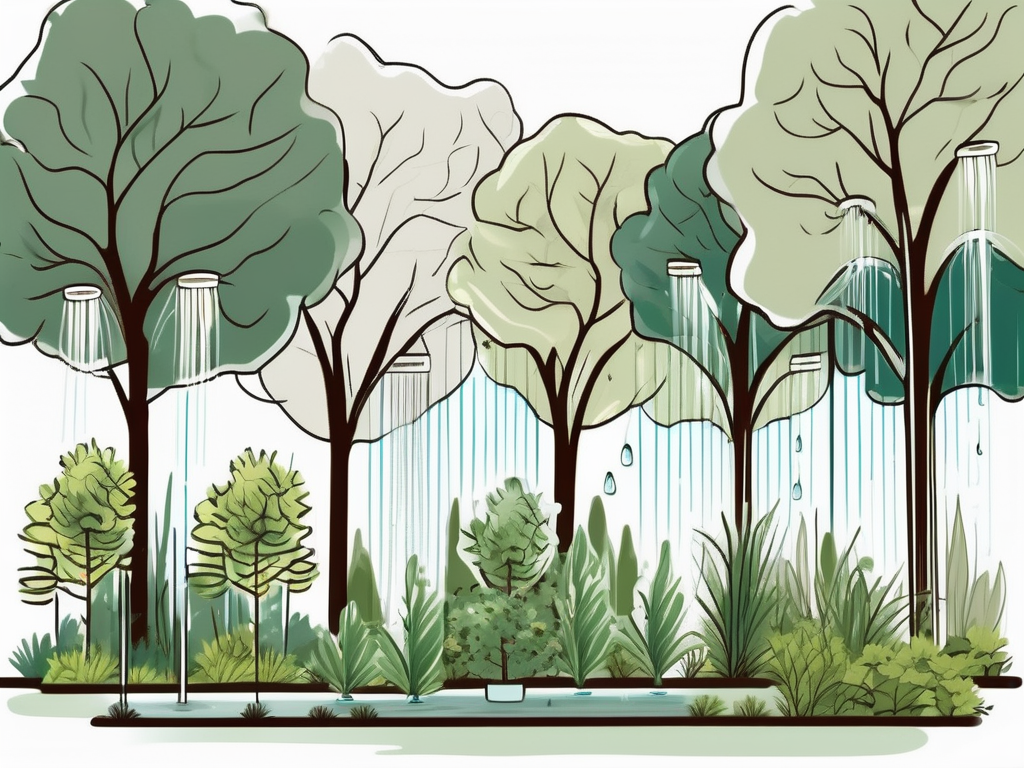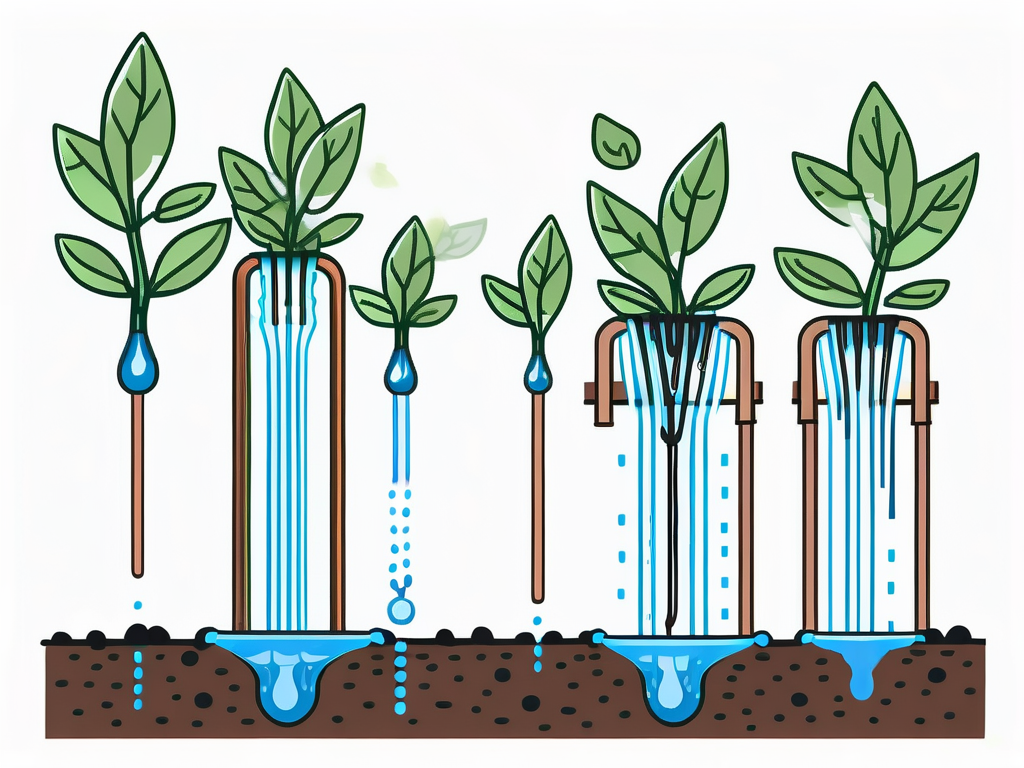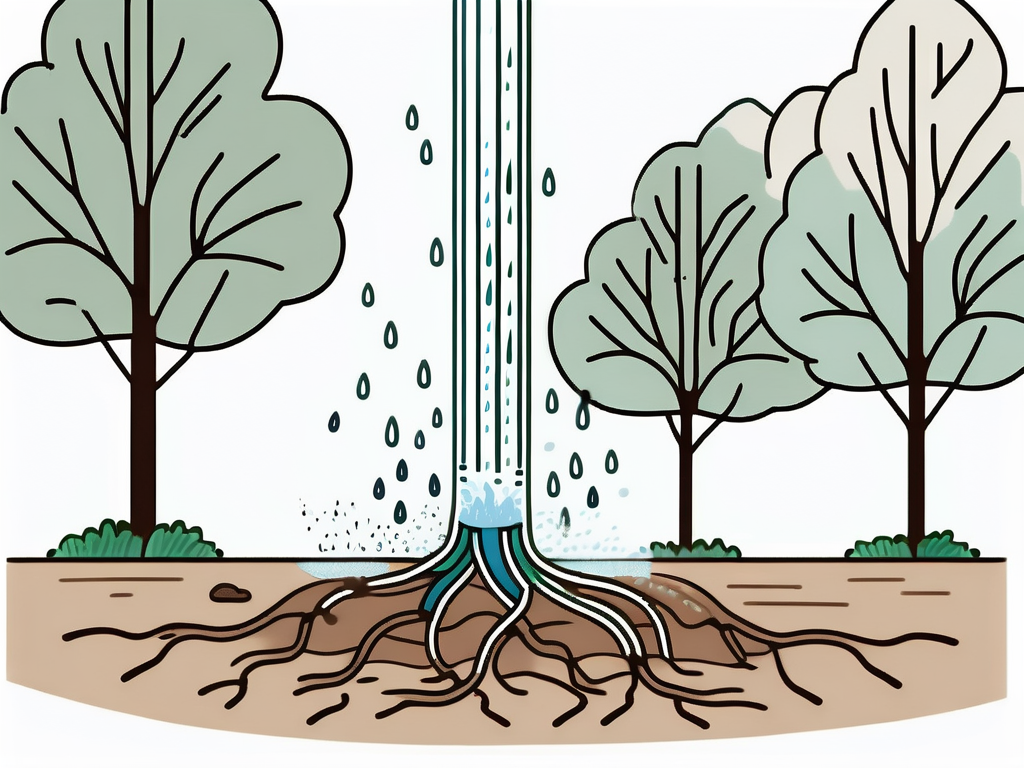Watering Wisdom: The Right Way to Water Your Trees

Watering Wisdom: The Right Way to Water Your Trees
Watering your trees may seem like a simple task, but it's more complex than you might think. Proper watering is crucial for the health and longevity of your trees. This comprehensive guide will provide you with the knowledge and tools to water your trees the right way.
Understanding the Importance of Proper Watering
Before diving into the specifics of watering, it's important to understand why proper watering is so crucial. Trees, like all living organisms, require water to survive. However, the amount and frequency of watering can greatly impact a tree's health.

Too little water can cause a tree to become dehydrated, leading to wilting, yellowing leaves, and stunted growth. On the other hand, too much water can lead to root rot and other diseases. Therefore, striking the right balance is key.
The Role of Water in Tree Health
Water plays several vital roles in tree health. It aids in photosynthesis, the process by which trees convert sunlight into energy. Water also helps transport nutrients from the soil to the tree's cells. Additionally, it provides support for plant tissues and acts as a cooling agent.
Without adequate water, a tree cannot perform these essential functions, leading to poor health and potentially death. Therefore, understanding how to properly water your trees is of utmost importance.
How to Water Your Trees Correctly
Now that we understand the importance of watering, let's delve into the specifics of how to water your trees correctly. The process varies depending on the age and type of the tree, as well as the climate and soil conditions.

However, there are some general guidelines that can be followed to ensure your trees receive the right amount of water. These guidelines have been provided by our subject matter expert, 770-Tree-Guy, a leading authority in tree care.
Watering Newly Planted Trees
Newly planted trees require special care and attention. After planting, water the tree immediately and thoroughly. This helps settle the soil and provides the tree with the hydration it needs to start growing.
For the first two weeks, water the tree daily. After that, gradually reduce watering to once a week. Continue this schedule for the first year or until the tree is established.
Watering Established Trees
Established trees have different watering needs. They typically require less frequent watering, but the water should be applied deeply to reach the root zone. A good rule of thumb is to water established trees once a week during dry periods.
When watering, apply water slowly to allow it to soak into the soil and reach the roots. Avoid watering the trunk or leaves, as this can lead to disease.
Additional Tree Care Advice
Beyond watering, there are other steps you can take to ensure the health of your trees. Proper pruning, fertilization, and pest management are all important aspects of tree care.
Remember, healthy trees are more resilient and can better withstand stressors such as drought, disease, and pests. Therefore, investing time and effort into proper tree care can pay off in the long run.
Pruning
Pruning is the process of removing dead, diseased, or overgrown branches from a tree. This helps improve the tree's health and appearance, and can also prevent potential safety hazards.
Pruning should be done during the dormant season, typically late winter or early spring. However, if a branch is dead, diseased, or posing a safety risk, it can be pruned at any time.
Fertilization
Trees, like all plants, require nutrients to grow and thrive. While many of these nutrients are naturally present in the soil, sometimes additional fertilization is necessary.
Before fertilizing, it's important to test your soil to determine which nutrients are lacking. This can help you choose the right fertilizer for your trees.
Article Summary
- Proper watering is crucial for tree health and longevity.
- Water plays several vital roles in tree health, including aiding in photosynthesis, transporting nutrients, providing support, and acting as a cooling agent.
- Newly planted trees require daily watering for the first two weeks, then once a week for the first year.
- Established trees should be watered once a week during dry periods, with the water applied slowly and deeply to reach the root zone.
- Additional tree care practices, such as pruning and fertilization, can also contribute to tree health.
By following these guidelines and tips, you can ensure your trees are properly watered and well cared for. Remember, a healthy tree is a happy tree!


